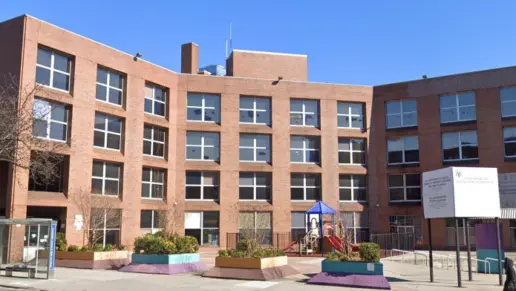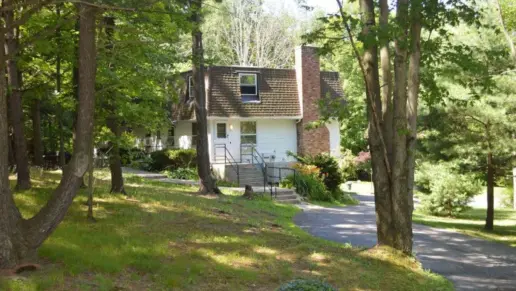About Saint Vincent’s Hospital Westchester
Saint Vincent’s Hospital Westchester’s Harrison Campus is a mental health and addiction treatment center for adults located in Harrison, New York. They provide medication assisted treatment, inpatient treatment, and partial hospitalization programming at the Harrison campus and offsite locations in White Plains, Tuckahoe, and Port Chester. As a division of Saint Joseph’s Medical Center, St. Vincent’s offers mobile crisis services for Westchester County. Specialized support is available for clients with co-occurring conditions.
Their medication assisted treatment services help you withdraw from alcohol, opioids, and other substances under medical supervision. As needed, a multi-disciplinary team of providers can administer FDA-approved addiction medications to ease your physical pain of withdrawal, minimize cravings, and lower the risk of relapse. In conjunction with participation in a counseling program, meds help improve patient outcomes and set the foundation for long term recovery.
Their inpatient program provides intensive chemical dependency treatment for adults aged 18 and older. Multidisciplinary and evidence based approaches are used to treat addiction, trauma, and co-occurring disorders. Psychiatric services are available for clients who need to work through mental health conditions while recovering from substance use disorder. Clients are encouraged to collaborate with the staff to set up treatment goals based on individual needs. The length of stay is up to 28 days.
Their outpatient program is appropriate if you need daily treatment to establish and maintain abstinence but who no longer need to be monitored at a facility. Program services for partial hospitalization include daily educational groups, individual and group therapy, co-occurring disorders educational groups, trauma support, emotional management, and behavioral therapy modification. Day and evening hours are available.
Aftercare may include connections to other departments within the Hospital for additional recovery support services, including medical care. In addition, Saint Vincent Hospital Westchester offers residential housing options that include transitional community residences and permanent housing. These services enable those struggling with serious mental illness, co-occurring mental illness, and addictions the chance to live as independently as possible while undergoing treatment.
They’re in-network with most commercial insurance providers. Out of network benefits can vary so ask your individual provider to confirm your coverage.
Facility Overview
Latest Reviews
Rehab Score
Gallery
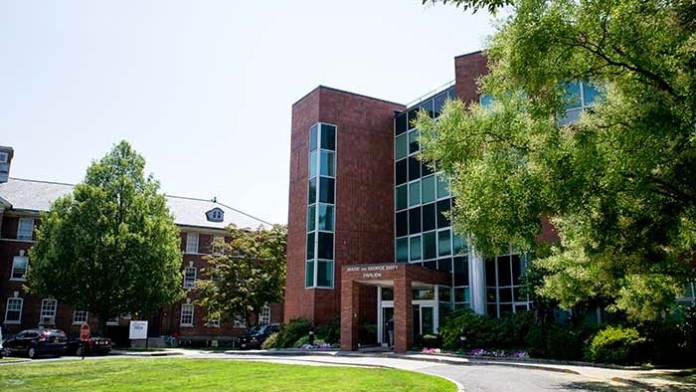
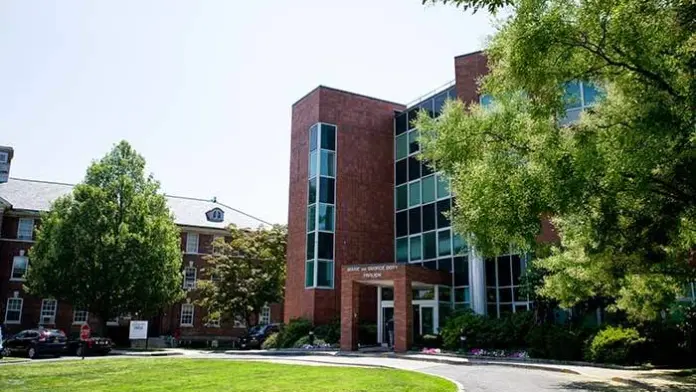
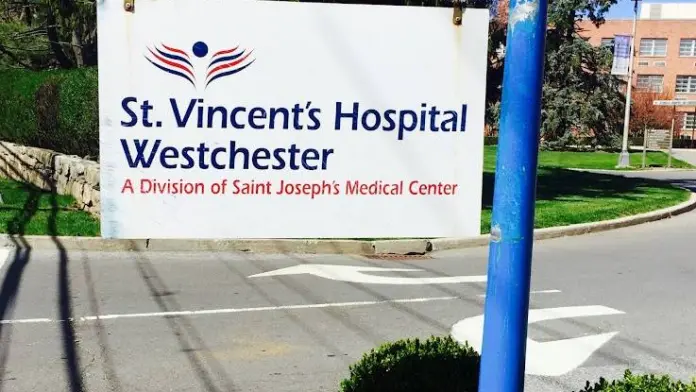
Location
Accepted Insurance











Other Forms of Payment
Medicaid is a state based program that helps lower-income individuals and families pay for healthcare. Medicaid covers addiction treatment so those enrolled can use their coverage to pay for rehab. When a program accepts Medicaid the client often pays very little or nothing out of their own pocket.
Private insurance refers to any kind of healthcare coverage that isn't from the state or federal government. This includes individual and family plans offered by an employer or purchased from the Insurance Marketplace. Every plan will have different requirements and out of pocket costs so be sure to get the full details before you start treatment.
Self-pay involves paying for treatment out of your own pocket. You can use savings or credit, get a personal loan, or receive help from family and friends to fund your treatment. If you don't have insurance or your insurance plan doesn't cover a specific program, self-pay can help ensure you still get the care you need.
Financial aid can take many forms. Centers may have grants or scholarships available to clients who meet eligibility requirements. Programs that receive SAMHSA grants may have financial aid available for those who need treatment as well. Grants and scholarships can help you pai for treatment without having to repay.
Sliding scale payments are based on a client's income and family size. The goal is to make treatment affordable to everyone. By taking these factors into account, addiction recovery care providers help ensure that your treatment does not become a financial burden to you or your family, eliminating one barrier to care.
Medicare is a federal program that provides health insurance for those 65 and older. It also serves people under 65 with chronic and disabling health challenges. To use Medicare for addiction treatment you need to find a program that accepts Medicare and is in network with your plan. Out of pocket costs and preauthorization requirements vary, so always check with your provider.
Military members, veterans, and eligible dependents have access to specific insurance programs that help them get the care they need. TRICARE and VA insurance can help you access low cost or no cost addiction and mental health treatment. Programs that accept military insurance often have targeted treatment focused on the unique challenges military members, veterans, and their families face.
Addiction Treatments
Levels of Care
Treatments
The goal of treatment for alcoholism is abstinence. Those with poor social support, poor motivation, or psychiatric disorders tend to relapse within a few years of treatment. For these people, success is measured by longer periods of abstinence, reduced use of alcohol, better health, and improved social functioning. Recovery and Maintenance are usually based on 12 step programs and AA meetings.
When you choose drug rehab in New York, you'll participate in a variety of treatments that are designed to help you live a drug-free lifestyle. Common methods of treatment include group, individual, and family counseling, medication management, nutrition, exercise, and management of co-occurring mental health disorders.
Many of those suffering from addiction also suffer from mental or emotional illnesses like schizophrenia, bipolar disorder, depression, or anxiety disorders. Rehab and other substance abuse facilities treating those with a dual diagnosis or co-occurring disorder administer psychiatric treatment to address the person’s mental health issue in addition to drug and alcohol rehabilitation. In all of the inpatient programs, comprehensive services are available to patients who require treatment for a dual diagnosis of mental illness and chemical dependency or mental illness and developmental disabilities.
A combined mental health and substance abuse rehab has the staff and resources available to handle individuals with both mental health and substance abuse issues. It can be challenging to determine where a specific symptom stems from (a mental health issue or an issue related to substance abuse), so mental health and substance abuse professionals are helpful in detangling symptoms and keeping treatment on track.
Opioid rehabs specialize in supporting those recovering from opioid addiction. They treat those suffering from addiction to illegal opioids like heroin, as well as prescription drugs like oxycodone. These centers typically combine both physical as well as mental and emotional support to help stop addiction. Physical support often includes medical detox and subsequent medical support (including medication), and mental support includes in-depth therapy to address the underlying causes of addiction.
Programs


Clinical Services
Cognitive Behavioral Therapy (CBT) is a therapy modality that focuses on the relationship between one's thoughts, feelings, and behaviors. It is used to establish and allow for healthy responses to thoughts and feelings (instead of unhealthy responses, like using drugs or alcohol). CBT has been proven effective for recovering addicts of all kinds, and is used to strengthen a patient's own self-awareness and ability to self-regulate. CBT allows individuals to monitor their own emotional state, become more adept at communicating with others, and manage stress without needing to engage in substance abuse.
Research clearly demonstrates that recovery is far more successful and sustainable when loved ones like family members participate in rehab and substance abuse treatment. Genetic factors may be at play when it comes to drug and alcohol addiction, as well as mental health issues. Family dynamics often play a critical role in addiction triggers, and if properly educated, family members can be a strong source of support when it comes to rehabilitation.
Group therapy is any therapeutic work that happens in a group (not one-on-one). There are a number of different group therapy modalities, including support groups, experiential therapy, psycho-education, and more. Group therapy involves treatment as well as processing interaction between group members.
In individual therapy, a patient meets one-on-one with a trained psychologist or counselor. Therapy is a pivotal part of effective substance abuse treatment, as it often covers root causes of addiction, including challenges faced by the patient in their social, family, and work/school life.
Motivational Interviewing (MI) is a clinical approach to helping people with substance abuse issues and other conditions shift behavior in positive ways. It is more goal-oriented than traditional psychotherapy, as MI counselors directly attempt to get clients to consider making behavioral change (rather than wait for them to come to conclusions themselves). Its primary purpose is to resolve ambivalence and help clients become able to make healthy choices freely.
Nutrition therapy, aka medical nutrition therapy (MNT), is a way of treating physical, emotional, and medical conditions through diet. Specific dietary plans are designed by professional nutritionists or registered dietitians, and patients follow them in order to positively affect their physical and mental health.
Recreational therapy (aka therapeutic recreation) uses creative and fun activities to help with addiction recovery. Recreational therapists lead patients in entertaining and engaging activities like sports or games; art (drawing, painting, sculpture); drama, music, and dance; and/or community outings (field trips) to improve patients' physical, social, and emotional well-being.
Amenities
-
Private Rooms
-
Yoga Studio
Staff & Accreditations
Staff
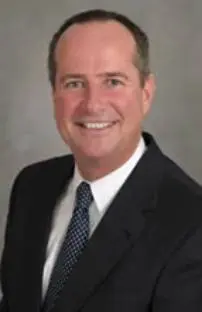
President & CEO

Medical Director

Senior Vice President, Finance, and CFO

Senior Vice President for Operations

Senior Vice President for Behavioral Health Services

Vice President, Human Resources

Vice President, Patient Care Services, Chief Nursing Officer

Vice President, Quality & Risk Management
Accreditations

The Joint Commission, formerly known as JCAHO, is a nonprofit organization that accredits rehab organizations and programs. Founded in 1951, the Joint Commision's mission is to improve the quality of patient care and demonstrating the quality of patient care.
Joint Commission Accreditation: Yes
Contact Information
275 North Street
Harrison, NY 10528







